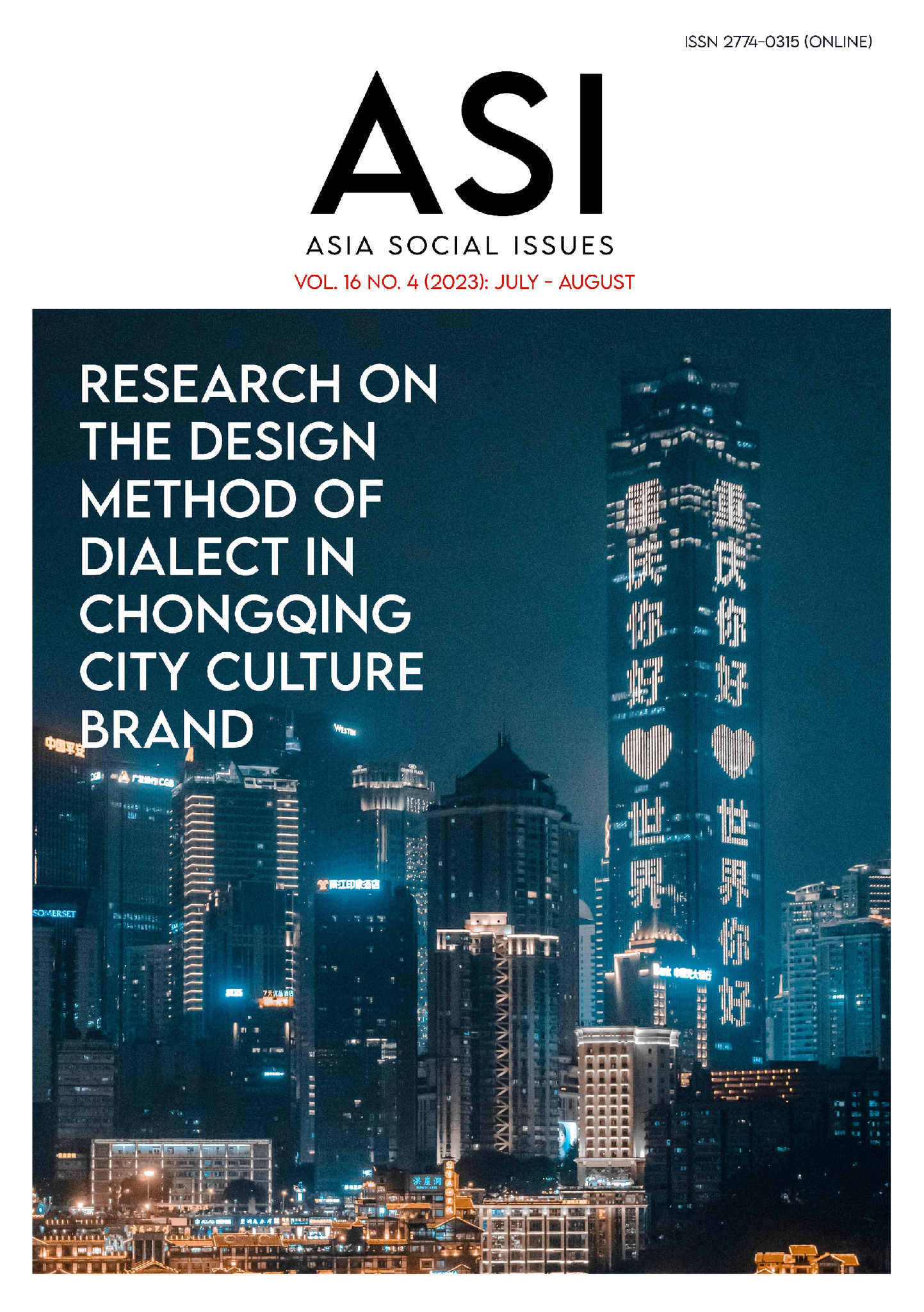Pre-service Mathematics Teachers’ Multicultural Mathematics Competency: A Case of a University in Northern Thailand
Main Article Content
Abstract
This study aimed to explore pre-service mathematics teachers’ perceptions of their strengths and deficiencies in dealing with students from diverse mathematics cultural backgrounds. The pre-service mathematics teachers in the final year at a university located in Northern Thailand were participants. The survey and focus group interview were manipulated to attain more profound confirmation about how the pre-service mathematics teachers performed in their diverse mathematics classrooms. The pre-service mathematics teachers’ strengths and deficiencies were represented and divided into the affective, cognitive, and psychomotor domains. Their strengths included 1) consciousness about the multicultural processes, 2) acknowledgment of students’ sources of resistance, and 3) possession of a feedback cycle for dealing with diverse mathematics classrooms. Nevertheless, it was found their deficiencies, including 1) unawareness of multicultural diversity through many perspectives, 2) limited knowledge to handle irrelevant students’ culture, and 3) lack of skills to respond to a problem existing such as time limits.
The implication included that pre-service mathematics teachers should have the opportunity to 1) interact with other different cultural mathematics backgrounds, 2) study more content courses about multicultural mathematics, and 3) engage in various activities involving multiculturalism and be exposed to multicultural instruction courses.
Article Details

This work is licensed under a Creative Commons Attribution-NonCommercial-NoDerivatives 4.0 International License.
Copyright: CC BY-NC-ND 4.0
References
Apple, M. W. (1992). Do the standards go far enough? Power, policy, and practice in mathematics education. Journal for Research in Mathematics Education, 23(5), 412-431.
Arphattananon, T. (2012). Education that leads to nowhere: Thailand’s education policy for children of migrants. International Journal of Multicultural Education, 14(1), 1-15.
Arphattananon, T. (2018). Multicultural education in Thailand. Intercultural Education, 29(2), 149-162.
Banks, J. A. (2009). Diversity and citizenship education in multicultural nations. Multicultural Education Review, 1(1), 1-28.
Banks, J. A. (2016). Cultural diversity and education: Foundations, curriculum, and teaching (6th eds.). New York, NY United States: Routledge.
Banks, J. A. (2019). An introduction to multicultural education (6th eds.). Seattle, WA United States: Pearson.
Bennett, C. I. (2019). Comprehensive multicultural education: Theory and practice (9th eds.). New York, NY United States: Pearson.
Bishop, A. J. (1988). Mathematics education in its cultural context. Educational Study in Mathematics, 19(2), 179-191.
Cobb, P., & Hodge, L. L. (2002). A relational perspective on issues of cultural diversity and equity as they play out in the mathematics classroom. Mathematical Thinking and Learning, 4(2-3), 249-284.
Creswell, J. W., & Creswell, J. D. (2018). Research design: Qualitative, quantitative, and mixed methods approaches (5th eds.). Thousand Oaks, CA United States: Sage.
Creswell, J. W., & Poth, C. N. (2018). Qualitative inquiry and research design: choosing among five approaches (4th eds.). Los Angeles, CA United States: Sage.
D’Ambrosio, U. (1985). Ethnomathematics and its place in the history and pedagogy of mathematics. For the Learning of Mathematics, 5(1), 44-48.
D’Ambrosio, U., & Rosa, M. (2017). Ethnomathematics and its pedagogical action in mathematics education (pp. 285-305). In Rosa, M., Shirley, L., Gavarrete, M. E., & V. Alangui, W. (Eds.). Ethnomathematics and its diverse approaches for mathematics education. Hamburg, Germany: Springer.
El Islami, R. A., & Nuangchalerm, P. (2020). Comparative study of scientific literacy: Indonesian and Thai pre-service science teachers report. International Journal of Evaluation and Research in Education, 9(2), 261-268.
Grant, C. A., & Sleeter, C. E. (1985). The literature on multicultural education: Review and analysis. Educational Review, 37(2), 97-118.
Greene-Clemons, C. D. (2016). Perceptions of technology engagement on culturally responsive pre-service teachers. Journal for Multicultural Education, 10(3), 339-353.
Greer, B., Mukhopadhyay, S., Powell, A. B., & Nelson-Barber, S. (2009). Culturally responsive mathematics education. New York, NY United States: Routledge.
Gutierrez, R. (2002). Enabling the practice of mathematics teachers in context: Toward a new equity research agenda. Mathematical Thinking and Learning, 4(2-3), 145-187.
Jun-on, N., & Kim, R. Y. (2019). Exploring implementation of multicultural mathematics education in Northern Thai classrooms. Journal of Learner-Centered Curriculum and Instruction, 19(21), 693-721.
Krathwohl, D. (2009). Methods of educational and social science research: The logic of methods (3rd eds.). Long Grove, IL United States: Waveland Press.
Lazarevic, N. (2020). Intercultural state of mind: Intercultural communicative competence of pre-service English language teachers. Journal for Social Sciences, 44(2), 319-338.
Ministry of Education. (2008). Basic education core curriculum B.E. 2551 (A.D. 2008). Bangkok, Thailand: Agricultural Cooperative Federation of Thailand.
Nasir, N. S., & Cobb, P. (2002). Diversity, equity, and mathematical learning. Mathematical Thinking and Learning, 4(2&3), 91-102.
Nawarat, N. (2018). Education obstacles and family separation for children of migrant workers in Thailand: A case from Chiang Mai. Asia Pacific Journal of Education, 38(4), 488-500.
Prapinwong, M. (2018). Developing intercultural awareness for pre-service teachers in Thailand. ABAC Journal, 38(2), 21-35.
Sitthitikul, P., & Prapinwong, M. (2020). Intercultural communicative competence development in an EFL context in Thailand (pp. 65-83). In Lee, H., & Spolsky, B. (Eds.). Localizing global English. London, United Kingdom: Routledge.
Sleeter, C. E. (1997). Mathematics, multicultural education, and professional development. Journal for Research in Mathematics Education, 28(6), 680-696.
Sleeter, C. E. (2001). Preparing teachers for culturally diverse schools: Research and the overwhelming presence of whiteness. Journal of Teacher Education, 52(2), 94-106.
Sleeter, C., & Grant, C. (1987). An analysis of multicultural education in the United States. Harvard Educational Review, 57(4), 421-445.
Sriraman, B., & Steinthorsdottir, O. (2007). Emancipatory and social justice perspectives in mathematics education. Interchange, 38(2), 195-202.
Sriraman, B., & Steinthorsdottir, O. (2009). Social justice and mathematics education: Issues, dilemmas, excellence and equity (pp. 319-366). In Ernest, P., Greer, B., & Sriraman, B. (Eds.). Critical Issues in Mathematics Education. Charlotte, NC United States: Information Age Publishing Inc.
Sunthonkanokpong, W., & Murphy, E. (2019). Quality, equity, inclusion and lifelong learning in pre-service teacher education. Journal of Teacher Education for Sustainability, 21(2), 91-104.
Wiest, L. R. (2001). Teaching mathematics from a multicultural perspective. Equity & Excellence in Education, 34(1), 16-25.
Zaslavsky, C. (1996). The multicultural math classroom: Bringing in the world. Portsmouth, NH United States: Heinemann.


